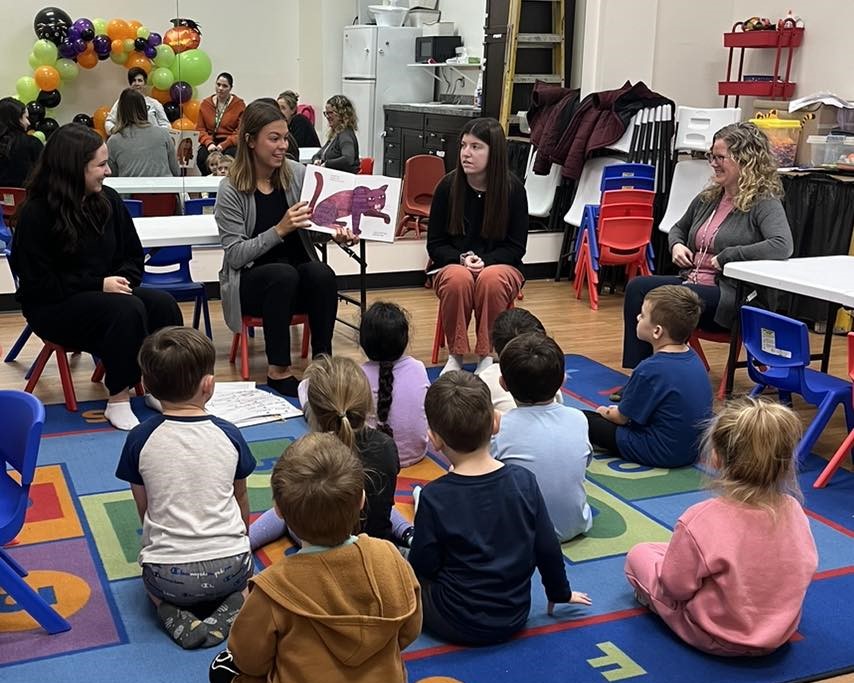Elizabeth Eisele ‘25SLP: My favorite part of working with WRTS was making the sessions interactive and being able to participate with the kids as well as help them during the sessions.
Danyelle Adelman ‘25SLP: My favorite part of working with WRTS was getting to see the ability levels of the different children we worked with and to see their language skills develop over the course of the semester. I also enjoyed getting to talk to the parents of the children and to provide parent coaching because that is not an experience we get in the clinic.
Eliana George ‘25SLP: My favorite part of working with WRTS was having the opportunity to work with my friends to create a fun and language enriching environment for the kids and caregivers that came to our group each week!






